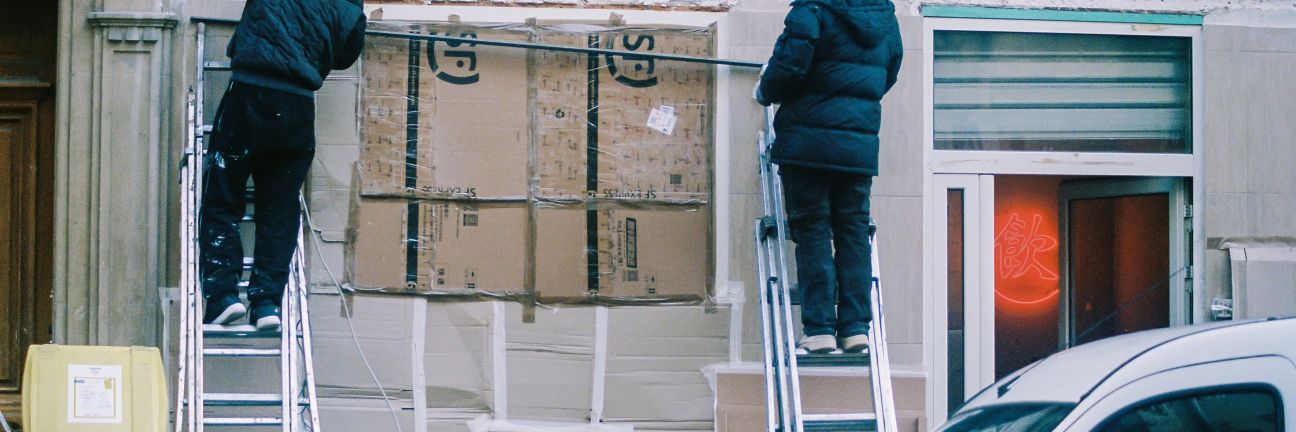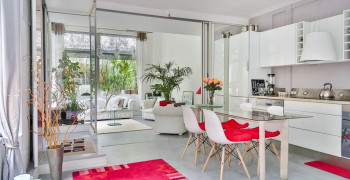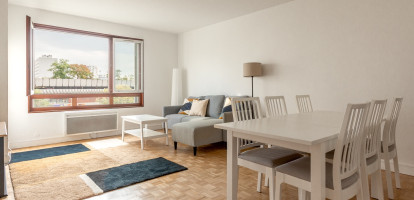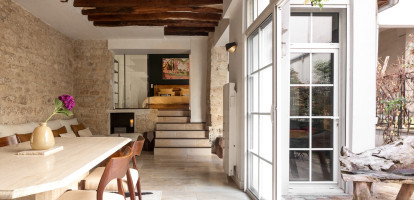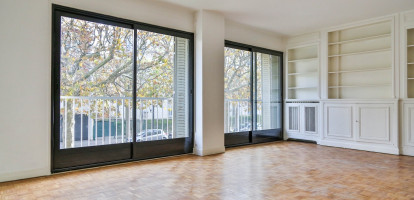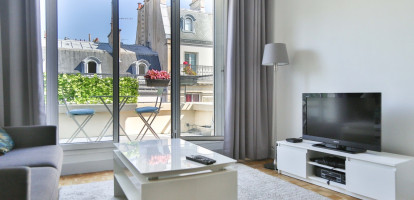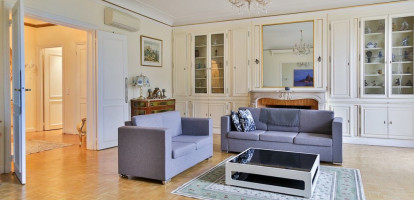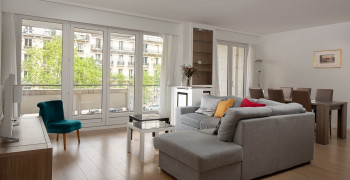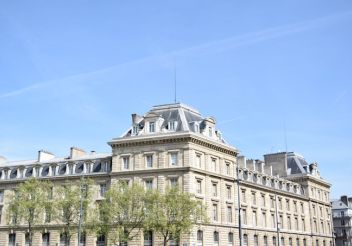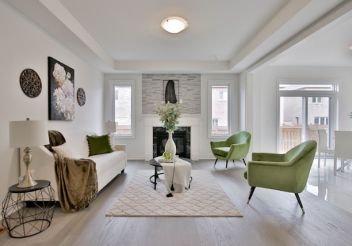Click here to learn about the new DPE updates and regulations for small apartments in 2024.
Which DPE Class is Prohibited for Rental in 2023?
What are the consequences for the property with a DPE (Diagnostic for Performance of Energy) of G label in France? From 2023, rental accommodations that consume more than 450 kWh/m2 of final energy per year are considered "indecent accommodations" and are banned from rentals in France. In 2022, nearly 2,032,000 primary residences were classified as G, which is the worst label for DPE performance (energy performance diagnosis). Of those, 812,000 properties belong to the private or social rental sector.
Can I still rent out my apartment for the G class?
Yes, if its final energy consumption is less than 450 kWh/m2/year! Because the important information is the limit of 450 kWh of final energy by the square meter and by year.
According to Article 1 of Decree No. 2021-19 of January 11, 2021, enforced on January 1, 2023, if the consumption is below 450 kWh/m2/year, the G-label rental apartment can still be rented out in 2023.
NOTA BENE: The rental prohibition only applies to new rental contracts starting from this date.
What are primary energy and final energy?
- Primary energy refers to the energy in its natural state, such as gas, fuel, oil, etc.
- Final energy refers to the energy users use after transforming and distributing it.
For example, when we use natural gas to generate heating, gas is the primary energy source. However, some energy will get lost due to inefficiencies in the conversion process. Therefore, the final energy (heating) delivered to the apartment is less than the initial primary energy (gas). On the other hand, if the accommodation heats with electricity, its final energy consumption will generally be much lower than those heated by primary energy (gas, fuel, oil, etc.). That explains why the rental prohibition applies mainly to properties heated with fuel oil or gas.
Where to find the final energy consumption on my DPE report?
The DPE result is on the 1st page of the energy performance diagnosis report, and the final energy consumption is on page 3 (annual consumption and expenses: "E.F." in light gray).
Typically, the energy label reflects the primary energy classification. When examining the DPE label of your rental apartment in Paris, you might discover that its energy consumption exceeds 450 kWh/m2/year, which is set as the limit for renting in France. However, the figure we typically talk about is in primary energy, but the final energy matters!
Do not confuse final energy with primary energy!
Once you have the yearly final energy consumption, you can calculate a value per square meter and compare the result with the limit of 450 kWh/m²/an.
For example, from the table below, the annual primary energy is 14 942 kWh. And just below, in gray, is the final yearly energy 13 662 kWh.
So, to calculate the annual final energy consumption per square meter of your property, divide the final yearly energy by the surface of your property.


The good news is soon, all DPE reports will indicate the total amount of final energy consumption in kWh/m2/year, making it easier for everyone!
How to improve a DPE from a G level to Class D?
Carry out insulation work
To improve the DPE score and achieve a DPE performance of D class, carry out thermal insulation work starting with the roof, walls, windows (for example, install double-glazed windows), and doors. Therefore, it is essential to check the state of insulation in both habitable and non-habitable surfaces.
The most significant heat loss area is:
- the roof, which accounts for 25-30%,
- walls, which account for 20-25%,
- windows, which account for 10-15%.
Insulation is particularly critical for older homes, particularly those built in Paris before 1974, which tend to lack proper thermal insulation.
Optimizing your heating system
To achieve a better energy assessment (DPE) in France, optimizing the heating system is another crucial factor for a successful energy renovation project. Consider changing the energy source of the heating and hot water production in your apartment. Also, thermostatic radiator valves should be installed or the heating pipes insected. Again, we recommend you seek advice from a professional heating engineer.
Improve the ventilation system
Please pay attention to your home's ventilation system, as it plays a crucial role in renewing indoor air and minimizing indoor pollution. Besides, proper ventilation also helps decrease humidity levels, making it easier to heat the air and reducing heating expenses. Therefore, consider installing either a single-flow controlled mechanical ventilation (VMC) or a double-flow VMC to enhance your ventilation system.
What is the cost of going from a G/F label to a D label?
Upgrading your property's DPE (energy performance) rating from class G to class D makes your accommodation eligible for renting, reduces your final energy consumption by almost 50%, and saves on the utility bill. How much does an energy renovation cost? The estimated cost for improving the energy rating from F/ G to D/ E is around 350 euros per square meter.
Cost of replacing the heating system:
There are various heating replacement options available in the market, with prices that vary significantly:
Gas condensing boiler: €3,000 to €5,000
By recycling wasted gas back into the system, the condensing boiler can achieve an energy efficiency of 90%. This result is significantly higher than a conventional boiler, whose efficiency typically ranges between 70-80%.
Condensing oil boiler: €3,700 to €7,000
The most significant benefit of a condensing oil boiler is its energy efficiency, with a potential efficiency rating of about 90%.
Micro-cogeneration boiler: €12,000 to €20,000
It can provide energy savings of up to 40%.
Automatic pellet boiler: €7,000 to €18,000
It provides energy savings of up to 93%. Besides, pellet boilers do not release harmful carbon gas.
Efficient wood boiler: €6,000 to €20,000
It provides a cleaner environment, eliminating smoke, soot, and ash and reducing dryness within buildings.
Geothermal heat pump: €13,000 to €20,000
GHPs offer a significant advantage over traditional heating, consuming 25% to 50% less electricity.
Aerothermal heat pump: €10,000 to €15,000
Aerothermal systems can harness energy from the outside air and extract up to 75% of it, substantially reducing electricity usage for homes and buildings.
Two main factors influence the cost of insulation work in France:
The surface area and volume of the parts that require insulation:
the larger the surface area, the higher the cost. Therefore, it may be more cost-effective to focus your insulation work on areas significantly reducing heat loss, such as the roof, walls, and windows.
The type of insulation selected:
A wide range of options is available, with prices varying from €3 per square meter for glass wool to over €60 per square meter for vacuum insulating panels.
How to Finance My Energy Renovation Project in Paris?
The French government assists the public with its energy renovation projects to decrease the nation's energy consumption.
MaPrimeRénov'
MaPrimeRénov' is a French government-funded program encouraging energy renovation work on residential properties. Since October 1, 2020, MaPrimeRénov has been eligible for all owners, regardless of their income, whether they occupy their home or rent it out. However, since January 1, 2022, MaPrimeRévov has been reserved for housing built for at least 15 years to reinforce the renovation of old housing. However, it is still possible to benefit from MaPrimeRénov' for all homes built more than two years ago that need to replace a boiler running on fuel. It covers a range of renovation projects, such as insulation, heating, ventilation, and energy audits. The grant amount can be as high as €10,000 for significant renovation work. To apply, you must check your eligibility on Simul'aides, ensure your renovation work meets the criteria, and submit your application through the MaPrimeRénov website.
Eco-PTZ
The zero-rate eco-loan, or eco-PTZ, is a loan applicable for energy renovation work. The loan can be up to €50,000, payable over 15 or 20 years. Banks provide it with a partnership agreement with the government. The eco-PTZ loan applies to equipment, materials, and installation costs. To benefit from this loan, you must choose a bank partnering with eco-PTZ and complete the standard borrowing form with the work estimates and other supporting documents.
MaPrimeRénov' Serenity
MaPrimeRénov' Serenity is another financial program helping with major energy renovation work in residential property and has been in place in France since 2022. It aims to help landlords or tenants with modest or low incomes, with their principal residence built at least 15 years ago. The program finances various energy renovation works, and the amount of aid is according to the candidate's income, with premiums reaching up to €10,500 or €15,000.
Tenant's Right: Rental Accommodation with DPE of G
The climate and resilience law states that the tenant living in Paris apartment for rent classed at G can request their landlord to carry out an energy renovation. A landlord who fails to comply with these provisions risks a formal notice from their tenant demanding to do the work and bring the property up to standard. This formal notice is to be sent by registered letter with a receipt and indicates the signs of non-conformity of the dwelling.
If the landlord refuses to do the work, the tenant can take the matter to court. The judge can then order the landlord to carry out the work at his own expense, within a time limit, and penalty for late payment. The judge may also reduce or suspend rent payments until work is done.
Please note: the lessor may not ask the lessee to carry out the work himself, even for compensation.
Can the tenant carry out energy renovation work?
If the landlord and tenant agree, the latter can ask to supervise the required insulation work, especially if they live in the apartment. However, the landlords will bear the cost of the work to reach the DPE grade entitling them to rent out their property. An agreement between the two parties will specify the terms.
Tenants also have the right to carry out additional insulation, joinery, ventilation, and heating work at their own expense and upon request.
Tenants must notify their landlord by registered letter with a receipt. Without a response within two months, the landlord will be deemed to have given tacit approval to the work and will not be entitled to request from their tenant to restore the premises at the end of the lease.
Upcoming Rental Bans on Energy-Inefficient Housing in France
So, optimizing the energy performance is an issue to be addressed sooner or later, for a ban will be implemented in stages, with different deadlines for different energy efficiency ratings.
- Rental of Class G consuming between 420 and 450 kw/h per m² will be prohibited from 2025.
- Rental of Class F: banned from 2028.
- Rental of Class E: banned from 2034.
In conclusion, if your rental property's energy performance is Class G with consumption equal to or superior to 450 kWh/m²/, it is unfit for renting in 2023 due to low energy efficiency. But don't panic! There are still several actions to improve your DPE score, and you can obtain federal aid to finance your renovation project.
Editor: Siyi Chen
Sources: Service Public, Total Energy, Monexpert, Hellio
Credit Photo@Barthelemy de Mazenod
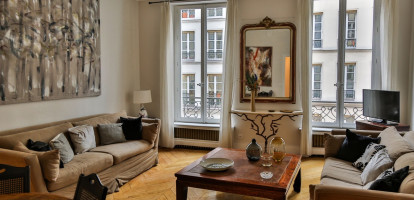


 Français
Français
